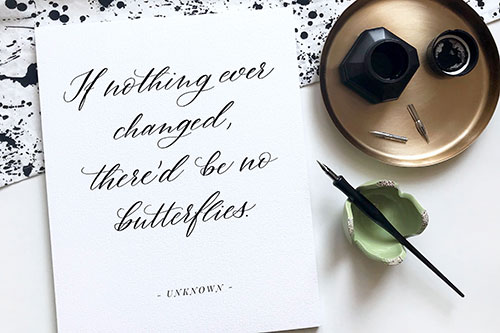
September 9, 2019
By Orly Dayan
In the 1950s, my grandfather’s family didn’t have a landline and when they were ready for one, it had to be ordered two years in advance! When I learned this recently, I immediately thought of my relationship with my phone. I take it with me everywhere I go. It’s by my side when I go to sleep and when I wake up. As soon as it breaks, I must repair it or replace it right away. It’s hard to remember that people lived without technology and that they were just fine. Did you know that in those days, if you wanted to see someone you would just show up at their door hoping that they were home?!
I’d like to challenge you to think about your relationship with your phone, think about what you would do in the following situations:
If you’re like me, you are inclined to see who it is and what they want. Maybe you are even tempted to respond right away? What is it that makes us so attached to our devices? That urges us to see who it is right away? A survey by Asurion, a global tech support and protection company actually found that, on average, we check our phones 80 times a day!
There are many things that make technology so appealing, like having an entire world at our fingertips and having a constant outlet through which we are “connected” to others. Don’t forget about the fact that on our phones, we can edit, retouch and control any information we disclose about ourselves. The thing is, real life is messy, demanding and it’s often times uncomfortable as Sherry Turkle elaborates on in her popular Ted Talk, “Connected, but Alone?”. Do we turn to technology to escape reality? Maybe we turn to technology as a safe space where we only do what feels good? Are we really “connected” when we are on our phones?
I define connection as the energy that exists between people when they feel seen, heard, and valued; when they can give and receive without judgment; and when they derive sustenance and strength from the relationship.”
― Brené Brown
In that same Ted Talk, “Connected, but Alone?”, Sherry Turkle addresses our problematic relationship to technology and explains that although technology is exciting, we are letting it take us places that we don’t want to go. She asks the question, “as we expect more from technology, do we expect less from each other?”. She expresses that what a lot of people are feeling when they reach for their phone to see the latest post is “no one is listening”. It seems some people turn to technology in order to fill a void of loneliness. Is that true, have we come to a place where we are not prepared to put others before ourselves and engage in genuine conversations? I challenge you to think about this, even if just briefly before using your phone. Ask yourself, is there a reason I am picking it up? Do I need to reach someone? Am I waiting for a call? Awareness in this area can motivate you to change your habits. Sherry Turkle discusses these issues and some possible solutions extensively in her books Alone Together and Reclaiming Conversation, the Power of Talk in the Digital Age.
We may think that it is just our relationships that are affected, but researchers from the University of Oxford (1) list more things that can result from problematic smartphone use. Their list includes psychological effects like anxiety, depression, memory problems, sleep problems and a poor ability to make decisions. Moreover, there are also physical effects, like poor posture.
It is believed today that smartphone use can become addictive (2) and therapeutic approaches can be used to help individuals get over this. Velthoven, Powell and Powell (2018) give us some suggestions for how we can control our smartphone use.
The issues with technology are real, but don’t forget they are also relatively new and it’s up to us to nip them in the bud, since life is about connecting, not just living together. Good luck!
(1) Van Velthoven, M. H., Powell, J., & Powell, G. (2018). Problematic smartphone use: Digital approaches to an emerging public health problem. DIGITAL HEALTH. https://doi.org/10.1177/2055207618759167=
(2) . Billieux, J . Problematic use of the mobile phone: A literature review and a pathways model. Curr Psychiatry Rev 2012; 8: 299–307.
Alone Together,by Sherry Turkle
Reclaiming Conversation, the Power of Talk in the Digital Age, by Sherry Turkle